1. Diogenes e peri tyrannidos - Диоген, или за тиранията (6)
Diogenes ho Sinopeus, hotan ephygen ek Synopes aphikomenos eis ten Hellada diege pote men en Koryntho...
Von Arnim has proved quite conclusively that the 6, 8, 9, and 10 Discourses belong to the period when Dio was a wanderer in exile. For example, many things that Dio speaks of Diogenes doing, such as going through armies safely without a herald's staff, fit better the experience of Dio himself, and many of the references to the Persian king would apply just as well to Domitian, who banished Dio. No doubt the speaker's audiences would understand his veiled allusions quite easily.
In these Discourses Dio sets forth certain tenets of the Cynical philosophy, using Diogenes as his mouthpiece. His subject is Contentment.
***
2. Diogenes e peri aretes - Диоген, или за доброделта (8)
Diogenes ho Sinopeus ekpeson ek tes patridos, oudenos diapheron ton panu phaulon, Athenaze aphiketo...
The subject of the eighth Discourse is "The Real Athlete," and the speech was evidently delivered during Dio's period of exile. The reference to Diogenes' exile at the beginning is no accident. When the latter was represented as telling how he endured hunger, thirst, and poverty, and narrating the labours of Heracles, Dio's audience naturally thought of the speaker himself; and when Eurystheus, who tyrannized over Heracles, they thought of Domitian, who banished Dio.
3. Diogenes e Isthmikos - Диоген, или Истмийска реч (9)
Isthmion onton katebe Diogenes eis ton Isthmon, os eoiken, en Korintho diatribon, paretunchane de tais panegyresin...
In the ninth Discourse, as in the eighth, we find Diogenes attending the Isthmian games, and in both Discourses there is the same reference to the importance of the great public gatherings for Diogenes' purpose, the same references to physicians and to dogs. These similarities have led to the inference that the two Discourses were prepared at about the same time; but while in the preceding Discourse we are given the subject-matter of Diogenes' teaching, in this one it is rather his method of teaching that is shown.
4. ΔΙΟΓΕΝΗΣ Η ΠΕΡΙ ΟΙΚΕΤΩΝ - Diogen, ili za robite
Ἀπιών ποτε Διογένης ἐκ Κορίνθου Ἀθήναζε συνέβαλε κατὰ τὴν ὁδὸν ἑνὶ τῶν γνωρίμων, καὶ ἤρετο ποῖ ἄπεισιν, οὐχ ὥσπερ οἱ πολλοὶ τὰ τοιαῦτα ἐπερωτῶσιν...
The tenth Discourse contains Cynic doctrine and belongs like the two preceding Discourses to Dio's period of exile. He could not consistently have praised the condition of being without property except when he was in exile and without property himself...
This Discourse has two parts. In the first it is shown to be better to be without a slave or any other piece of property if you do not know how to use it, and then the stronger statement is made that it is better to have no property at all. In the second part it is shown to be very dangerous and indeed harmful to consult a god when you do not know how to do so; while if you do know, it is unnecessary. To sum up: it is better to own no property and to consult no god.
5. ΠΕΡΙ ΣΩΚΡΑΤΟΥΣ - За Сократ (54)
Ἱππίας ὁ Ἠλεῖος καὶ Γοργίας ὁ Λεοντῖνος καὶ Πῶλος καὶ Πρόδικος οἱ σοφισταὶ χρόνον τινὰ ἤνθησαν ἐν τῇ Ἑλλάδι καὶ θαυμαστῆς ἐτύγχανον φήμης...
This little tribute to Socrates is presumably the prelude to some longer discussion. It affords no clue as to either the occasion or the place where the speech was delivered, but the speaker's rather scornful treatment of the sophists, who occupy fully one-third of the piece, and his affectionate regard for Socrates point clearly to some date subsequent to Dio's exile.
Hippias of Elis, Gorgias of Leontini, Polus, and Prodicus are all familiar figures among the sophists who made such a stir in Greece toward the close of the fifth century B.C. All make their appearance in the pages of Plato, Hippias and Gorgias having provided the titles for three of his dialogues. One might wonder why Dio refrains from naming "the man from Abdera" (§ 2). Abdera's fame may be said to rest upon that of two of her native sons, Democritus, the famous philosopher, and Protagoras, no less famous as a sophist.
6. ΠΕΡΙ ΟΜΗΡΟΥ ΚΑΙ ΣΩΚΡΑΤΟΥΣ - За Омир и Сократ (55)
Ἐπεὶ φαίνῃ καὶ τἄλλα Σωκράτους ὢν ἐπαινέτης καὶ τὸν ἄνδρα ἐκπληττόμενος ἐν τοῖς λόγοις, ἔχεις μοι εἰπεῖν ὅτου μαθητὴς γέγονε τῶν σοφῶν...
Just as in some dialogues of Plato, there is at first a lively debate between teacher and pupil, after which the teacher takes possession of the field and expounds his doctrine with little or no interruption from the pupil. The text of Dio, however, does not reveal the identity of speakers other than the master himself.
The theme of the present Discourse is that Socrates acquired his art as a teacher from Homer. The anonymous interlocutor is sceptical on that point, objecting that Socrates never met Homer, and also calling attention to the wide difference between the function of the poet and that of the philosopher. After successfully demolishing these objections, Dio proceeds to note certain points of resemblance between Homer and Socrates — their modesty, their scorn of wealth, their interest in ethical problems, their use of parables or similes as vehicles of instruction, and their method of employing specific human beings to illustrate virtues and vices. To this last-named point Dio devotes fully a third of his dialogue. His arguments seem to have silenced his pupil, for there is no rejoinder.
(J.W. Cohoon)
About the Latin Academy in the Vatican
13 years ago
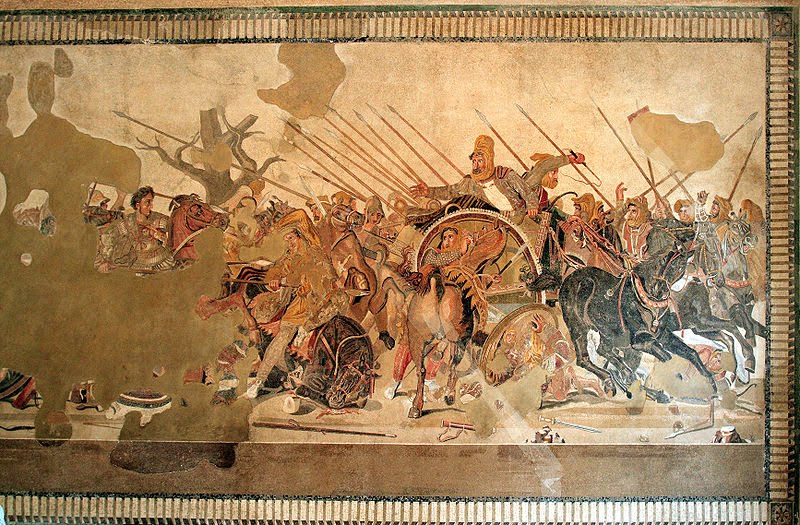
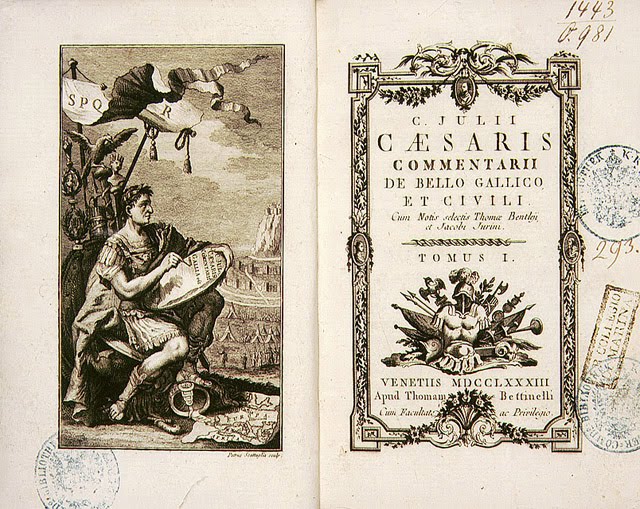
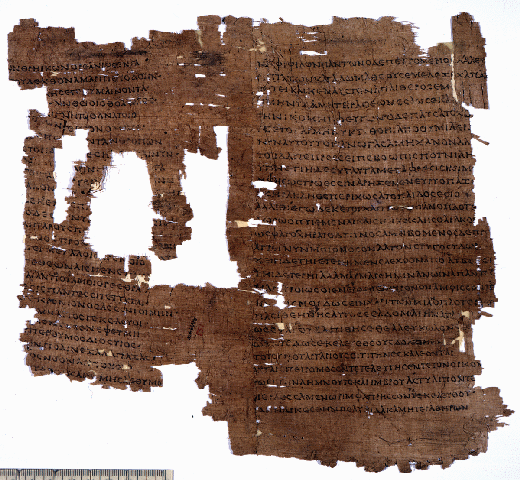
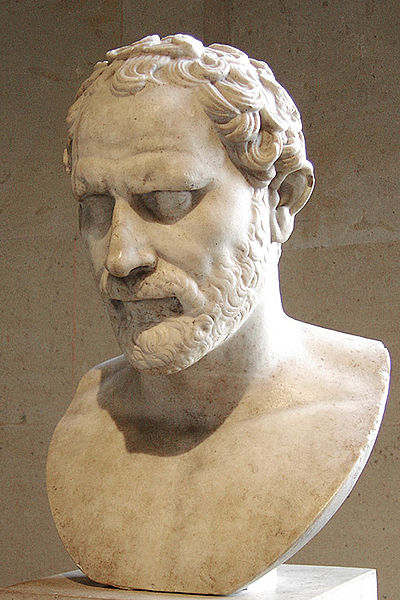


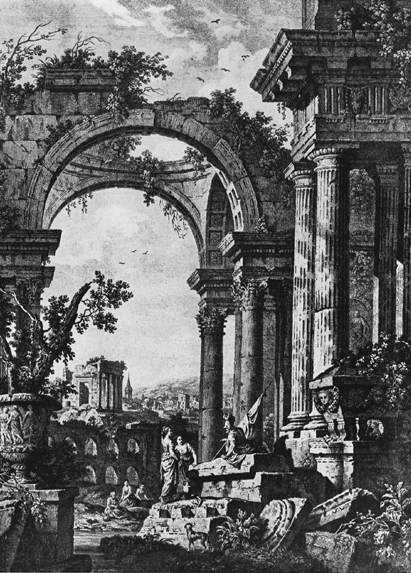




No comments:
Post a Comment